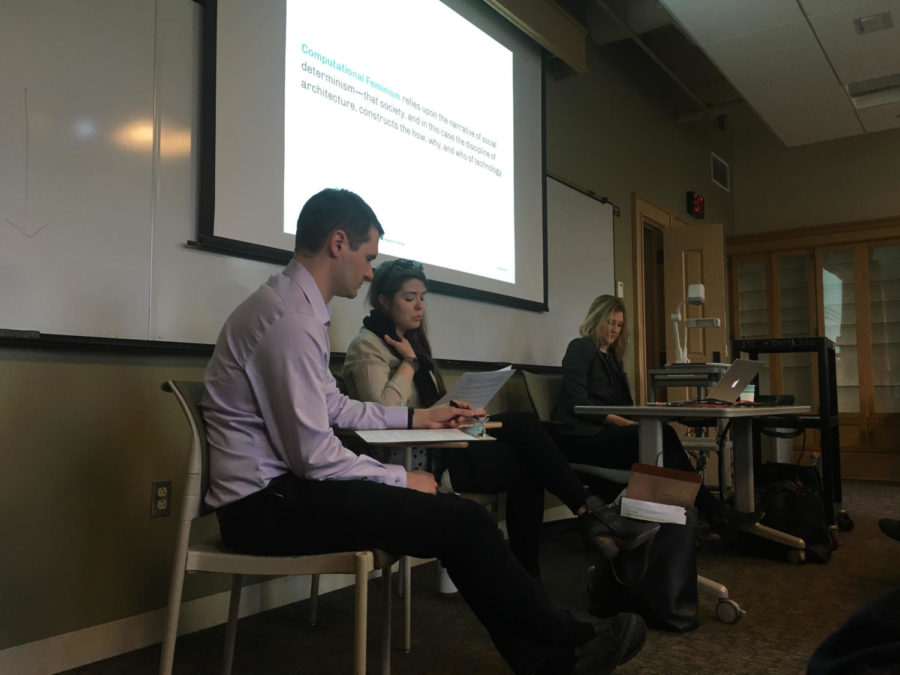Women’s and Gender Studies seminar discussed Computational Feminism
January 31, 2018
Wednesday’s women’s and gender studies seminar focused on “Computational Feminism: Searching for Cyborgs.”
Shelby Doyle, Leslie Forehand and Nick Senske co-founded the Iowa State University Computation + Construction Lab (CCL). The CCL is an initiative of the department of architecture at Iowa State and works to connect developments in computation to the challenges of construction.
Doyle is an assistant professor in architecture, Forehand is a lecturer in architecture, and Senske is an assistant professor in architecture.
There are currently 308 students enrolled in Iowa State’s architecture program.
“The goals here are to reveal gender inequalities in current practice and scholarship in computation design, and to begin to address this inequality by moving beyond the anecdotal and into more constructive research,” Doyle said.
Computational design uses the powerful attributes of computers and procedures.
During the seminar, the speakers presented information from their paper “Computational Feminism: Searching for Cyborgs.”
This paper is only the second paper on feminism in architecture in the CumInCAD Index. CumInCAD is a cumulative index about publications in computer-aided architectural design.
In their study, computational feminism is defined as “a transdisciplinary field which grew out of the first 25 years of the digital turn. It continues to develop new theories on how politics of gender and other identity markers are interconnected to resulting processes of technical change, and the power relations of the globalized, material world.“
“It is a descendant of the 1990s discourses of technofeminism and cyberfeminism that emerged in relationship to the development of network conditions and theories in architecture and urbanism.”
It also “relies upon the narrative of social determinism- that society, and in this case the discipline of architecture, constructs the how, why, and who of technology.”Some of their research is based off “A Cyborg Manifesto” by Donna Haraway published in 1984.
During the lecture, Doyle, Forehand and Senske presented some of the waves of feminism that emerged throughout history. Some of these waves include technofeminism, cyberfeminism, and now Computational Feminism.
At the end of the seminar, Doyle, Forehand and Senske, opened the conversation to questions or advice in relation to women’s and gender studies.
“Women’s relationship to technology is complicated, contradictory and itself a social construct. It provokes fresh possibilities for feminist and computational scholarship, and perhaps even action” Doyle, Forehand and Senske said.
















